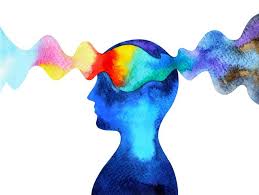
…today’s secret…Cognitive bias
Each of us has foundational assumptions which shape how we see the world and act in it.
We craft our foundational assumptions over time through our personal experiences, preferences, and, yes, prejudices.
We see things not as they are, but as we are.
Our foundational assumptions influence our behavior, opinions, and the decisions we make (and have made in the past).
Some of our assumptions can be harmful because they cause us to draw inaccurate conclusions. Smart people label this faulty conclusion drawing as having a cognitive bias.

Wikipedia lists 192 of the most common cognitive bias. Check them out. They will raise your eyebrows. Promise.
Last week we identified two belief systems that organizations follow to help marginalized populations work and play well with others – (1) planning or (2) improvisation.
Organizations can argue until Jesus returns as to which is more effective.
One problem inside both operating systems is the decision makers within the chosen system cannot be perfectly objective. There is always some degree of cognitive bias in play.
Those decision makers might…
…search for and interpret information that confirms information they already believe.
…focus their attention to one slice of information while disregarding other vital information slices.
…tend to think that their own beliefs are more common and the people they are trying to help are more deviant or uncommon.
I could go on, but you get my point.
The challenge when trying to help someone change their life is to minimize cognitive bias within the decision-making.
You can attack this logically by first being more aware of cognitive bias…
…and then, you could maybe inject curiosity into the arm of each decision-maker like a Covid vaccination shot. Curiosity, after all, is poking and prying with a purpose.
Or, you could possibly ponder this…
…pain is not a bias. Again, experiencing pain in life is not a bias. Pain is not a choice we choose. Pain is just is and it hurts like hell inside us.
The people you are choosing to help have pain and are bringing it to you…and they are hiding it from you.
Think about thinking of them like you would think about a close friend in a crisis. You don’t send flowers. You send yourself.
Sending yourself to the people you are trying to help will take a big chunk out of whatever bias is in the room.
Just asking you to think about that for a bit…
